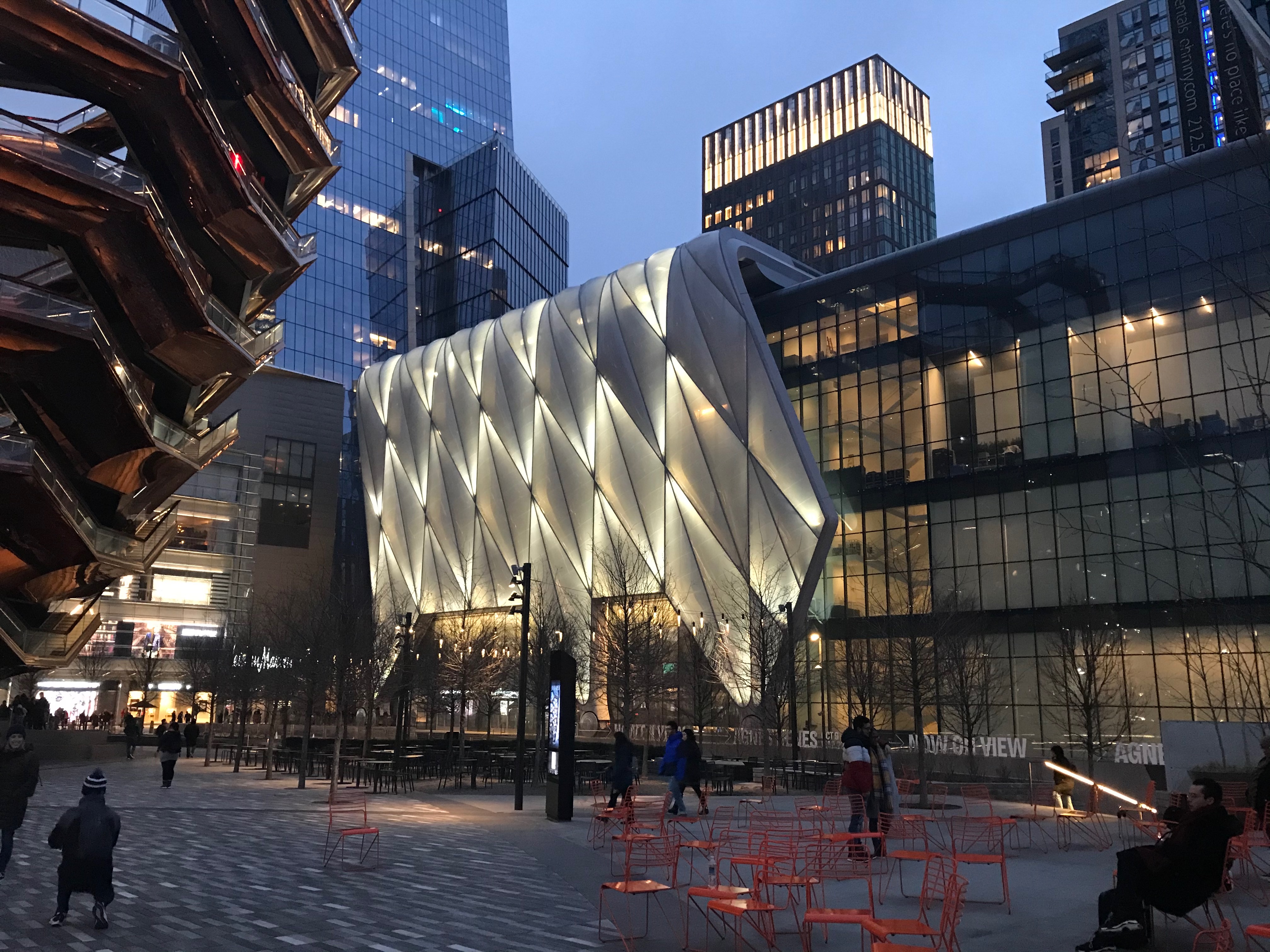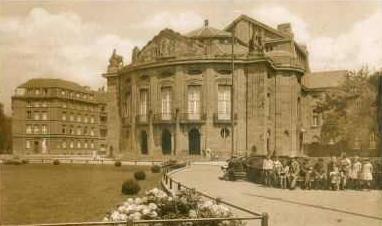|
Stralsund Theatre
The Stralsund Theatre (german: Stralsunder Theater) in the German town of Stralsund has a long tradition. Performances of theatre pieces on the ''Alter Markt'' are documented in the years 1553 (''"Tragedie van deme Daniel"'') and 1584 (''"De Tragedien van Susannen"''). The present building was designed by Carl Moritz and opened in 1914. The tradition has continued since the merger of the theatres of the towns of Stralsund and Greifswald in 1994 into the Theatre of West Pomerania The Theatre of West Pomerania (german: Theater Vorpommern) is a theatre in the German state of Mecklenburg-Vorpommern that is operated legally as a '' GmbH'', a form of public limited company. Its shareholders are the Hanseatic towns of Stralsu ... ('). External links Official web presence of theatres in West PomeraniaBaltic Sea Festivals in Stralsund & GreifswaldConversion of Stralsund Theatre(photographs, construction history, drawings) Stralsund Theatre in Germany Culture of Mecklenburg-Wes ... [...More Info...] [...Related Items...] OR: [Wikipedia] [Google] [Baidu] |
Theater (structure)
A theater, theatre or playhouse, is a structure where theatre, theatrical works, performing arts and musical Concert, concerts are presented. The theater building serves to define the performance and audience spaces. The facility usually is organized to provide support areas for performers, the technical crew and the audience members, as well as the stage where the performance takes place. There are as many types of theaters as there are types of performance. Theaters may be built specifically for a certain types of productions, they may serve for more general performance needs or they may be adapted or converted for use as a theater. They may range from open-air amphitheaters to ornate, cathedral-like structures to simple, undecorated rooms or black box theaters. A theatre used for opera performances is called an opera house. A theater is not required for performance (as in site-specific theatre, environmental theater or street theatre, street theater), this article is about s ... [...More Info...] [...Related Items...] OR: [Wikipedia] [Google] [Baidu] |
Stralsund
Stralsund (; Swedish: ''Strålsund''), officially the Hanseatic City of Stralsund (German: ''Hansestadt Stralsund''), is the fifth-largest city in the northeastern German federal state of Mecklenburg-Western Pomerania after Rostock, Schwerin, Neubrandenburg and Greifswald, and the second-largest city in the Pomeranian part of the state. It is located at the southern coast of the Strelasund, a sound of the Baltic Sea separating the island of Rügen from the Pomeranian mainland.'' Britannica Online Encyclopedia'', "Stralsund" (city), 2007, webpageEB-Stralsund The Strelasund Crossing with its two bridges and several ferry services connects Stralsund with Rügen, the largest island of Germany and Pomerania. The Western Pomeranian city is the seat of the Vorpommern-Rügen district and, together with Greifswald, Stralsund forms one of four high-level urban centres of the region. The city's name as well as that of the Strelasund are compounds of the Slavic ( Polabian) ''stral'' and ''s ... [...More Info...] [...Related Items...] OR: [Wikipedia] [Google] [Baidu] |
Germany
Germany,, officially the Federal Republic of Germany, is a country in Central Europe. It is the second most populous country in Europe after Russia, and the most populous member state of the European Union. Germany is situated between the Baltic and North seas to the north, and the Alps to the south; it covers an area of , with a population of almost 84 million within its 16 constituent states. Germany borders Denmark to the north, Poland and the Czech Republic to the east, Austria and Switzerland to the south, and France, Luxembourg, Belgium, and the Netherlands to the west. The nation's capital and most populous city is Berlin and its financial centre is Frankfurt; the largest urban area is the Ruhr. Various Germanic tribes have inhabited the northern parts of modern Germany since classical antiquity. A region named Germania was documented before AD 100. In 962, the Kingdom of Germany formed the bulk of the Holy Roman Empire. During the 16th ce ... [...More Info...] [...Related Items...] OR: [Wikipedia] [Google] [Baidu] |
Carl Moritz (architect)
Carl Moritz (27 April 1863 – 23 August 1944) was a German architect and real-estate entrepreneur. Based in Cologne, he built the Cologne opera house of 1902, and various banks, theatres and churches in Germany. Career Born in Berlin, Moritz studied architecture at the Technische Hochschule Charlottenburg. In 1894 he began his career as an independent architect in Berlin; the same year he took a study trip to England, one year later to Italy. From 1896 to 1898 he was inspector at the municipal building department in Cologne, after which he worked there as a freelance architect. He founded eight architectural firms or companies in Cologne in the 1930s, working closely with the architects Albert Betten and Werner Stahl. In 1934 he retired and settled on Lake Starnberg, where he died in Berg, part of Starnberg. A large part of his work involved bank building; during his career, Moritz designed about 40 banks, mostly for the Barmer Bank Corporation, for whom he worked as a ... [...More Info...] [...Related Items...] OR: [Wikipedia] [Google] [Baidu] |
Alter Markt (Stralsund)
{{disambiguation ...
Alter may refer to: * Alter (name), people named Alter * Alter (automobile) * Alter (crater), a lunar crater * Alter Channel, a Greek TV channel * Archbishop Alter High School, a Roman Catholic high school in Kettering, Ohio * ALTER, a command in older implementations of COBOL * Alter ego, or "alter" in popular usage, a "second self" * Alter (SQL) * ''Alter'' (album), 2002 album by Floater * ''Alter'', a 2006 remix album by Swiss band Knut * "Alter", a song from the 1994 album '' Glow'', by Raven See also * Altar (other) An altar is a religious structure for sacrifices or offerings. Altar may also refer to: Arts and entertainment * ''Altar'' (album), a 2006 album by Sunn O))) and Boris * Altar (Brazilian band), a dance music band * Altar (Dutch band), a death m ... [...More Info...] [...Related Items...] OR: [Wikipedia] [Google] [Baidu] |
Theatre Of West Pomerania
The Theatre of West Pomerania (german: Theater Vorpommern) is a theatre in the German state of Mecklenburg-Vorpommern that is operated legally as a '' GmbH'', a form of public limited company. Its shareholders are the Hanseatic towns of Stralsund and Greifswald and the town of Putbus. The Theatre of West Pomerania puts on plays, ballets, concerts, operas, operettas and musicals. Every year, in addition to the performances at their main sites, there are open air performances, the Baltic Sea Festivals (''Ostseefestspiele'') both in Stralsund (here on the old freighter, ''Ursula B.'' in Stralsund Harbour) as well as in Greifswald (on the Museum Harbour Stage, ''Bühne am Museumshafen'', in the ruined ''Eldena Abbey'' and on the market place) and in other towns in Western Pomerania (''Vorpommern''). External links Theatre of West Pomerania in Greifswald and StralsundBaltic Sea Festivals at the Theatre of West Pomerania References Western Pomerania Historical Western ... [...More Info...] [...Related Items...] OR: [Wikipedia] [Google] [Baidu] |
Theatre In Germany
Theatre or theater is a collaborative form of performing art that uses live performers, usually actors or actresses, to present the experience of a real or imagined event before a live audience in a specific place, often a stage. The performers may communicate this experience to the audience through combinations of gesture, speech, song, music, and dance. Elements of art, such as painted scenery and stagecraft such as lighting are used to enhance the physicality, presence and immediacy of the experience. The specific place of the performance is also named by the word "theatre" as derived from the Ancient Greek θέατρον (théatron, "a place for viewing"), itself from θεάομαι (theáomai, "to see", "to watch", "to observe"). Modern Western theatre comes, in large measure, from the theatre of ancient Greece, from which it borrows technical terminology, classification into genres, and many of its themes, stock characters, and plot elements. Theatre artist Patrice Pavi ... [...More Info...] [...Related Items...] OR: [Wikipedia] [Google] [Baidu] |
Culture Of Mecklenburg-Western Pomerania
Culture () is an umbrella term which encompasses the social behavior, institutions, and norms found in human societies, as well as the knowledge, beliefs, arts, laws, customs, capabilities, and habits of the individuals in these groups.Tylor, Edward. (1871). Primitive Culture. Vol 1. New York: J.P. Putnam's Son Culture is often originated from or attributed to a specific region or location. Humans acquire culture through the learning processes of enculturation and socialization, which is shown by the diversity of cultures across societies. A cultural norm codifies acceptable conduct in society; it serves as a guideline for behavior, dress, language, and demeanor in a situation, which serves as a template for expectations in a social group. Accepting only a monoculture in a social group can bear risks, just as a single species can wither in the face of environmental change, for lack of functional responses to the change. Thus in military culture, valor is counted a typical be ... [...More Info...] [...Related Items...] OR: [Wikipedia] [Google] [Baidu] |




